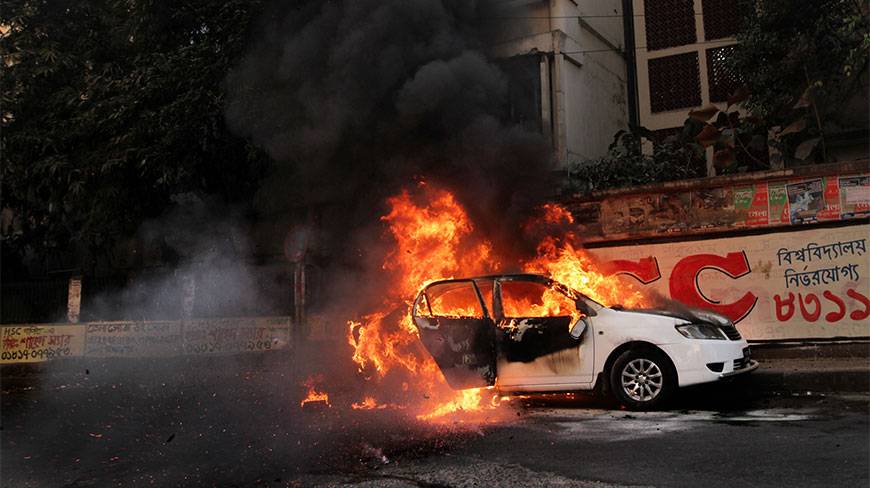Both sets of my grandparents left their ancestral homes to come to the new country they had helped carve in 1947, a country whose birth was opposed tooth and nail by Jamaat-e-Islami, often through violent means.
Their children – my parents, uncles, aunts – all went on to get a university education irrespective of gender, and many moved into their professional lives. The fact that Jamaat and its likeminded types have opposed female higher education was not lost on my grandparents or their children and grandchildren. As they say in North American idiom, I came by my distaste for Jamaat honestly.
In adulthood, I have few illusions about how Jamaat and its type of fundamentalists will treat someone like me, whose religious beliefs will likely mark him as an apostate for starters. Add to that the fact that I have raised money for Israeli children’s charities and count more than a few Jews as personal friends.
Top it off with the article I wrote twelve years ago in a major Middle Eastern daily arguing – long before it was fashionable to do so – that trials for the genocide of 1971 were a historical and moral necessity for Bangladesh. Now you get the picture of the tender mercies that will be shown to me were I to find myself at the receiving end of Jamaat-Shibir hospitality.
It is not despite this perspective, but rather precisely because of it, that I find it highly imprudent to consider the “banning” of that party. I know a thing or two about history and politics, having taught those subjects, written about them, and engaged in more than a few presidential campaigns including those of George Bush (both father and son).
In more ways than one, physics resembles politics: Compressing the volume for matter inwards increases its pressure outwards. As we have seen in place after place, from the communists at the turn of the century in Russia, to the Nazis in 1930s Germany, to the Muslim Brotherhood in the Nasser-Sadat era in Egypt, ideologically rigid parties only become more extreme and more violent when deprived of some legal operating space.
More important, proscribing these organisations not only does not eviscerate them but, rather, falsely embellishes them with a certain aura of romanticised martyrdom that only serves to attract those disaffected for one reason or another. In the real world outside of boisterous rallies at Suhrawardy Udyan, that is the messy situation that the best laid intentions create.
Does this mean we keep quiet as the Jamaat-Shibir types keep on hyping the nonsense that their version of holy scriptures is the only “real constitution?” Not at all. The trick is to opt for the smart approach instead of the emotionally satisfying one. The wisdom of Sun-Tzu should be the guiding principle herein: Keep friends close, but adversaries closer.
The higher judiciary’s directive is a good start in that it did not ban Jamaat but ruled that the party could not participate in elections without bringing its charter into sync with the republican nature of the constitution. Beyond that, expose the links of this organisation not just to what happened four decades ago, but what ails society today in terms of misogynistic parallel justice systems, hostility to education, and physical violence in areas where Jamaat holds sway.
Instead of enabling madrasa education, the objective should be to emulate Kemal Ataturk and absorb that sector in its entirety into the regular public education system over a period of a few years.
And last but not least, meet Jamaat sponsored violence with targeted, focused, and lawful retribution on the perpetrators instead of making speeches about how other opposition parties are surreptitiously involved in imagined conspiracies. Bottom line, give Jamaat space to operate, but put enough pressure through the law and social activism so that eventually the party has two choices: Become civilized or become marginalised.
Either choice is more palatable than the status quo.
Source: Dhaka Tribune










